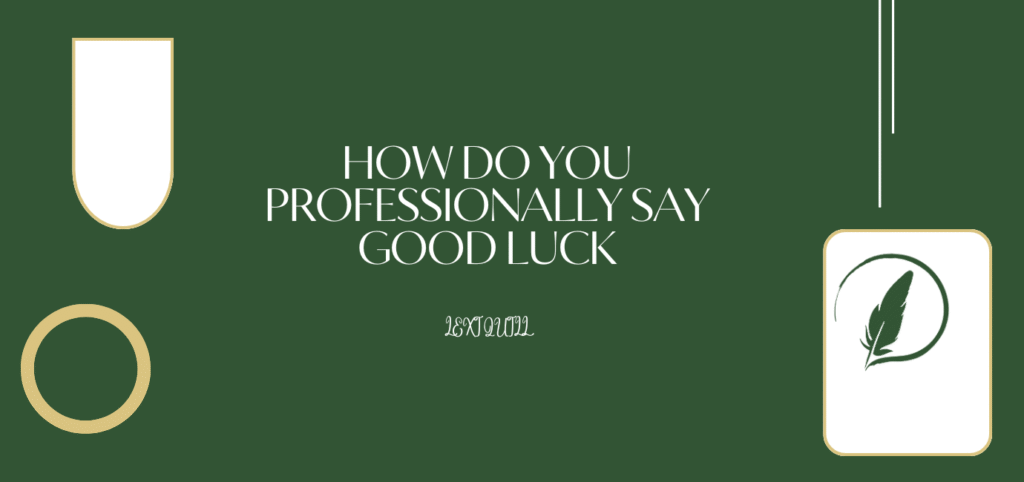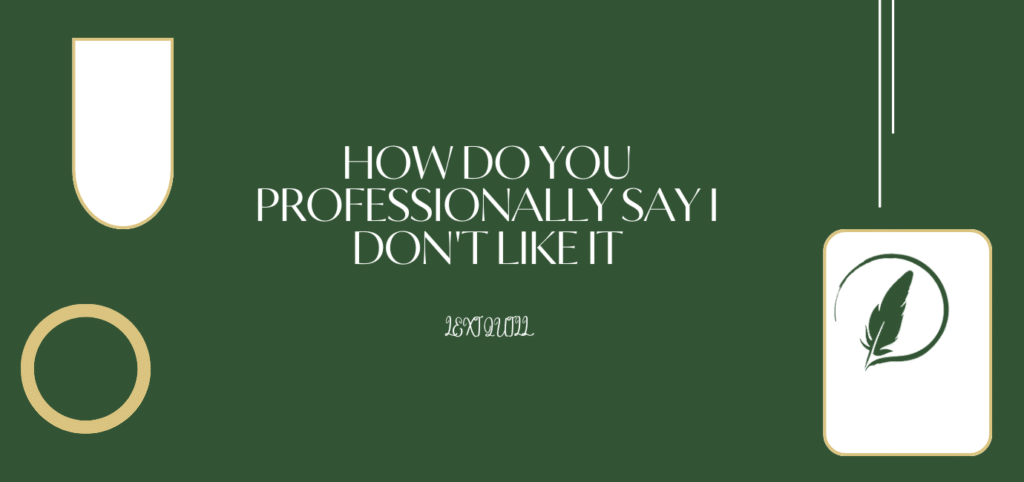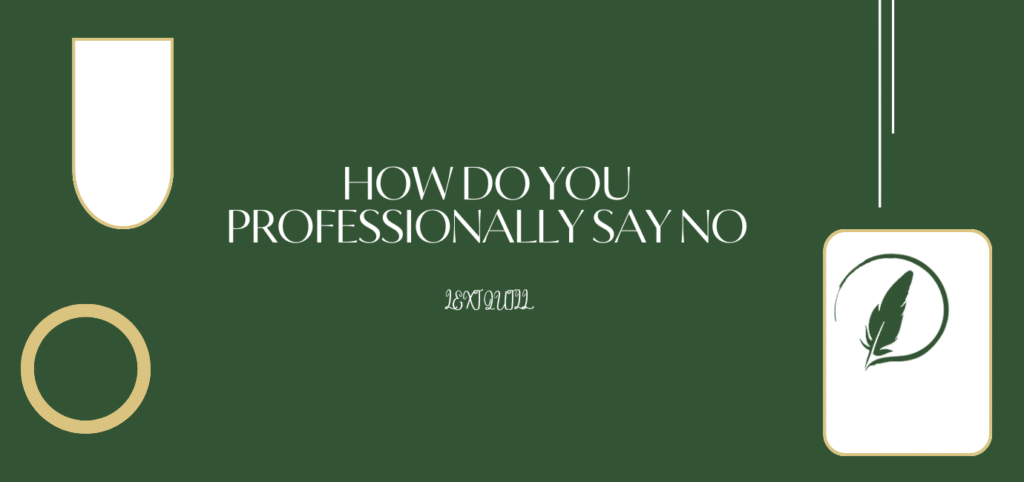In today’s fast-paced, professional environments, the way we communicate can significantly influence how we’re perceived. Whether you’re an executive, a job-seeking graduate, or a team leader, upgrading casual phrases like “Good luck” to more polished alternatives can help establish credibility and professionalism.
While “Good luck” is perfectly fine in informal settings, it may not always reflect the tone required in business emails, client interactions, or corporate presentations. Instead, knowing how to professionally say good luck equips you with versatile phrases that show support while maintaining the right level of formality.
In this guide, we’ll explore eight professional alternatives to “Good luck,” providing context, tone, and real-world examples to help you communicate with confidence and clarity.
Option 1: “Wishing You All the Best” – A Versatile, Polished Classic
Why It Works:
This is a widely accepted, professional alternative to “Good luck.” It expresses encouragement and support while maintaining a tone of sincerity and elegance.
Best For:
- Email sign-offs
- Congratulatory notes
- Client or coworker transitions
Example:
“Wishing you all the best in your new role. They’re lucky to have you on board!”
Related Professional Synonyms:
- All the best
- Warmest wishes
Option 2: “I’m Confident You’ll Do Great” – A Confidence-Booster
Why It Works:
Instead of wishing for a good outcome, this phrase shows confidence in the recipient’s abilities a subtle but empowering difference.
Best For:
- Encouraging colleagues before presentations
- Motivational messages in mentoring or coaching
- Performance reviews or promotions
Example:
“You’ve prepared thoroughly for this I’m confident you’ll do great during the pitch tomorrow.”
Related Business Phrases:
- I believe in your abilities
- I have full confidence in you
Option 3: “Wishing You Much Success” – Results-Oriented and Formal
Why It Works:
This phrase emphasizes outcomes and performance, making it ideal for goal-driven business settings. It aligns well with the language used in strategic, high-stakes environments.
Best For:
- Corporate emails
- Professional networking
- Project launches or promotions
Example:
“Congratulations on your new venture wishing you much success as you move forward.”
Related Phrases:
- Here’s to your continued success
- May your efforts yield great results
Option 4: “Best Wishes on Your Endeavor” – Polite and Professional
Why It Works:
This is a courteous and slightly more formal version of “Good luck.” It’s especially useful when communicating with clients, upper management, or unfamiliar business contacts.
Best For:
- Client-facing communication
- Formal letters and memos
- Professional correspondence
Example:
“Best wishes on your endeavor with the new campaign. Looking forward to seeing the results.”
Related Business Synonyms:
- Warm regards
- Best of luck (less formal)
Option 5: “I Hope It Goes Well” – Simple and Sincere
Why It Works:
This phrase softens the wish for a good outcome without sounding overly casual. It conveys authentic support without being too emotive or informal.
Best For:
- Internal team communication
- Cross-department collaboration
- Informal, but still professional, email threads
Example:
“I saw you’re presenting to the board today I hope it goes well!”
Related Expressions:
- I’m sure it’ll go smoothly
- Hope everything runs smoothly
Option 6: “Wishing You a Successful Outcome” – Results-Driven and Strategic
Why It Works:
This alternative is particularly appropriate in data-driven or results-oriented industries. It shows you’re rooting for tangible success rather than offering vague encouragement.
Best For:
- Project management communication
- Executive summaries
- Corporate reports or stakeholder updates
Example:
“We’ve seen great effort from your team wishing you a successful outcome with the client presentation.”
Related Synonyms:
- Hoping for a favorable result
- Here’s to your achievements
Option 7: “Sending Positive Thoughts Your Way” – Supportive and Empathetic
Why It Works:
While this is slightly more personal, it’s still suitable for many professional settings particularly when empathy is called for, like during transitions or challenges.
Best For:
- Difficult situations
- Team morale boosting
- Mentorship or career development talks
Example:
“Sending positive thoughts your way as you begin your relocation and new role.”
Related Phrases:
- Keeping you in my thoughts
- Rooting for you
Option 8: “You’ve Got This” – Confident and Motivational
Why It Works:
Though slightly more casual, it’s commonly accepted in workplaces that foster a collaborative, encouraging culture. It conveys belief in the person without sounding overly formal.
Best For:
- Peer-to-peer encouragement
- Internal Slack or Teams messages
- Project launches with familiar teams
Example:
“Big day today remember, you’ve got this!”
Related Business Expressions:
- Go get ’em
- You’re more than ready
Why Using Professional Language Matters
Polished communication helps professionals build credibility, trust, and lasting relationships. Replacing informal expressions like “Good luck” with thoughtful alternatives:
- Reflects emotional intelligence
- Enhances clarity and intent
- Aligns with the tone of corporate communication
- Strengthens professional branding
In short, professional language increases your impact both in what you say and how it’s received.
Conclusion:
Replacing simple phrases like “Good luck” with more professional alternatives can significantly improve the way you communicate in the workplace. Whether you’re looking to encourage a colleague, support a client, or motivate your team, having multiple expressions in your vocabulary ensures you speak with clarity, confidence, and credibility. Now that you know how to professionally say good luck, begin incorporating these refined phrases into your everyday communication. Over time, they’ll become second nature and your professional presence will shine even brighter.







